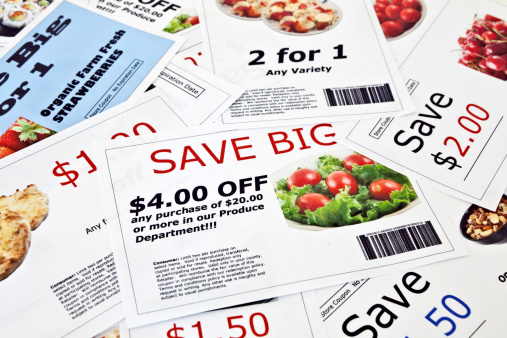Everyone wants a full wallet, but some money-saving tips and tricks require hours of effort and frustration, while others end up costing you money. The result? Both your wallet and your patience wear thin.
Is this Money-Saving Tactic Worth It?
There are two questions that can help you determine whether a money-saving tactic is worthwhile, says Brian Davis, a real estate investor, cofounder of SparkRental.com, and a personal finance blogger for the investor site Bigger Pockets.
1
Will this activity lead you to spend money you wouldn’t have shelled out otherwise?
If the answer is yes, just say no.
Next, if the activity actually does save money, calculate the dollar amount saved and the amount of time required. And ask yourself:
2
Would you work a job for the hourly pay of the money you save with this tactic?
If not, find a less time-consuming way to save.
If you don’t ask those questions, it’s easy to get sucked in by money-saving time wasters.
Frugal Activities Not Worth the Money-Saving Effort
Here are five frugal activities that aren’t worth the effort.
Couponing
Clipping coupons digitally or with scissors can makes sense if you come across one for an item you normally buy. However, serious couponing can cut your free time along with your costs.
Time Spent Finding and Cutting Coupons
Sites like The Krazy Coupon Lady describe methods of tracking down coupons that require scouring the internet, subscribing to your local paper to obtain coupon inserts (which, of course, costs you money) and even buying coupons. When it comes time to use those coupons, you’ll drive all over town to hit the various stores offering the best deals.
Space Needed for Stockpiles of Sale Items
Finally, many people who get into coupon cutting find they need to create space in their homes to hold the stockpiles of goods they get on sale but might not use up for years. And all this can backfire. A worst-case scenario: You spends months filling your freezer with meat purchased on sale, then the power goes out in an ice storm, spoiling your stash.
Do the math, Davis advises, and you’ll probably find couponing earns you “a fraction of minimum wage.”
The Exception: If you have plenty of extra time and enjoy couponing as a hobby. As long as you’re not spending more than you save by paying for couponing classes, buying coupons, and filling up the gas tank to drive all over town, have fun.
Chasing Freebies
You could spend hours perusing the internet for free money, where companies give you incentives to sign up for a free service, open a bank account, or complete a survey.
Hunting down these deals and jumping through the required hoops can take hours, and you might wait weeks or months to get your gift card in the mail.
Also, there’s plenty of fine print that goes along with these offers, and some consumers fulfill their end of the bargain but fail to receive the promised reward. For example, a person never receiving the $100 they were promised for opening and using a prepaid credit card.
The Exception: Some banks offer bonuses from $150 to $300 for opening a new account and fulfilling a few requirements. If you were thinking about switching banks anyway, these offers provide a nice incentive, according to Kathryn Hauer, a certified financial planner and the author of “Financial Advice for Blue Collar America.” Just make sure there are no hidden fees or unreasonable rules about how much money you have to keep in the account, she warns.
Downloading Money-Saving Apps
It’s easy to load up your smartphone with apps that might save you a few cents or dollars, but they may also encourage you to buy sale items you wouldn’t otherwise have purchased. Many retailers have their own apps that dangle deals to encourage you to buy, buy, buy.
The Exception: Some apps are easy, don’t nudge you to buy items you’re not specifically shopping for and offer a simple set-it-and-forget-it interface. For example, Byers loves the browser extension Honey because when you go to shop for an item online it scans the internet for coupon codes. “You don’t have to do anything and you automatically save money,” he says.
Being Penny-Wise
Buying cheap appliances, clothing, tires, and other products, such as insurance, can lead to spending more in the long run than if you had invested in a quality item or service from the start. Cheap goods may break or fail to work as expected. In that scenario, you’re out more money than if you had invested in a quality item from the start. You’ve also wasted a lot of time with the hassle of dealing with and replacing a broken or malfunctioning product.
- Example One: It pays to buy quality homeowners insurance and car insurance to so you can count on your insurer to come through for you if you have to file a claim. Buying cheap insurance can backfire if you’re forced to deal with slow claims, poor service and skimpy coverage.
- Example Two: Another example that many people don’t think about is shoes. Cheap shoes can cause foot problems, and result in a trip to the podiatrist, hundreds of dollars in medical bills and the need to spring for the quality pair you should have purchased initially.
The Exception: You plan to use an item rarely, or only once. If you live in Arizona and need a rain poncho for a one-time trip to Seattle with the grandkids, it’s probably smart to buy a cheapie.
Extreme Frugality
If you ever watched the TLC show “Extreme Cheapskates,” you can see how far a person can go to pinch a penny. Cheapskates featured on the show reuse dental floss, work out for free at sporting goods stores and fry up roadkill for dinner. “I read a frugality blog that seriously asked people to consider dumpster diving,” Hauer says. “That’s unsanitary and unsafe. And if you get some disease or cut yourself, the savings you might have gotten from nabbing a fresh dozen donuts will be far outstripped by the hospital bill.”
Less extreme actions like separating two-ply toilet paper into single-ply sheets and reusing ziplock bags might save you pennies, but tend not to be worth the effort.
The Exception: Some little actions like cutting off the end of a tube of toothpaste to squeeze out the last dollop are fine, in Hauer’s opinion. But beware of those that take a lot of time and risk, break a law, anger a store manager, or jeopardize your health.
Money Saving Tactics That Offer Big Payoff
Instead of frittering away your time and cash on money-saving time wasters, try these easy, proven strategies instead.
Research Prices on Key Purchases
Put your time and effort into saving money on consumer items you buy regularly, and also one-time purchases with high price tags. This offers bigger payoff for your money-saving time investment .
- Example One: You could spend 10 minutes tracking down the retailer that offers the lowest everyday price on the brand of dog food you buy, and your savings could add up to hundreds of dollars over time, a much better bet than spending the same amount of time procuring a coupon that will save you 25 cents once. That’s because regular purchases (and savings) add up over time and comparison shopping on expensive items offers a chance to save $10, $20, $100 or more.
- Example Two: Hauer found that one grocery store in her town sells her husband’s favorite hot chocolate for a dollar cheaper than other stores. If she buys it once a week, that’s almost $50 in savings a year.
Treat Your Savings as a Regular Bill
Handle saving money the same way you deal with paying your cell phone or electric bill. Pick a reasonable amount and automate the savings through your online banking so that sum goes right into your savings account every week or month.
Many experts recommend keeping your savings in an online bank that pays a slightly higher interest rate than many brick-and-mortar banks. If you want to use that money, you’ll need to make a transfer to your main bank, which can take a few days. This cooling-off period can prevent you from spending your savings without a good reason.
Figure Out How Much You Have to Spend
Instead of spending hours on budgeting apps, Byers recommends a simple system he calls Your Magic Number. “It only requires 10 minutes a day,” he notes. After you pay your fixed expenses, including funding your savings account, you calculate how much is left for the month and divide it by the number of days in that month. This is your “magic number,” and you can’t spend more than this on any given day. If you have money left over, you roll it forward to the next day.
Example: If your magic number is $50 and you spend nothing on the first day of the month, your magic number on the second day is $100. If you spend $95 that day, your magic number on the third day is $55.Using this system forces you to live within your means, save money and make smart spending choices. It also prevents a common situation in which you do your daily spending on a credit card, accidentally spend too much, then use the money in your savings to bail yourself out at the end of the month, according to Byers.
Striking the Balance
Any time you spend trying to save money takes away from time you could be spending on other life experiences, in Byers’ opinion. That’s why it’s smart to find a balance between effort expended and money saved. “It really is a trade-off,” he says.







You touched on a subject that IMO needs to be expanded: Determine what your fair hourly rate is and apply that to all your ‘free’ time. I do my own basic automobile servicing but take our vehicles to a trusted shop for major or difficult repairs. I mow our lawn and do basic upkeep but have a (licensed) professional do major work such as tree removal or outside painting of our two-story home. I schedule necessary shopping, take a list, and try to include all of the errands for the week in one outing. If I need an expensive tool, but only rarely, I try to rent rather than purchase – or find one used but well-maintained (such as from a tool rental shop). Renting also avoids the issue of storage – which also can have a cost basis. (How much room do YOU have in YOUR garage?)
John Albaugh, where do you Bank? I’d love to participate in the ‘keep the change’ program your bank offers. Thank you.
Char commented about stores offering buy two or more in order to get the sale price. I only buy the quantity needed and get the sale price from my local grocery store on each item.
I don’t know how other people use coupons, but for me they are a savings. I use coupons for everything I normally buy. Will us a coupon for things I want to try only if I believe we will use/like this item. I live with my son and his three teenagers. I buy healthy foods and cook them myself. The cooking yourself will save you a lot of money and the food is generally healthier. The big box store I shop at has great coupons and will accept Manufacturers coupons and the store coupons on the same item. If I have a $3 store coupon and a $1 manufacturers coupon on laundry detergent that is a great savings. I saved over $1000.00 just using coupons in this way from October of 2017 to October 2018. It takes about 2 hours once or twice a month to gather the coupons together before I go shopping. Keep track of the money you save doing this and you will be surprised at how much you can save.
This was a very informative read and gave me lots of ideas to think about. Thank you.
My bank offers a program called “keep the change “ when you use your debit card they round your purchase up to the next dollar and deposit that amount to your savings account. So far this year I have saved over $800.00 . I did nothing and it cost me nothing.
The answer is BUDGET. Add up all your expenditures for a month. Take your income, subtract expenditures and that’s what you have left to spend. Put savings as one of the expenditures. Another small way to save. The amount you pay for your groceries add the amount the store gives in their coupons, have a running record of this.. I charge my food account the full amount as though I didn’t get any savings from the food store. My savings, to date, is over $400 from savings from the store. I have spent the excess on things I wouldn’t normally buy, like a lunch in a special place..
What I see happening, but I don’t participate in it, is grocery stores offering a great price on items but only if you buy 2 or more to get that price. They also bundle different items to get saving on all of them, some of which you rarely, if ever, use. This causes people to stock up on items they don’t really want in order to save on their chosen items.
You missed a few time wasting activities. An expensive one, over time, is smoking and the health related causes can bankrupt you. Another is buying lottery tickets the odds are very high and the temptation to spend more on large jackpots is costly.
Gambling, in general, can cost you a lot more than you realize, your job, marriage and your self esteem. Alcohol and other substance abuse is affecting too many people in our country and is getting worse. These habits need to be addressed and
feel free to use them in your next money saving blogs.
Today’s coupons are not what they used to be. Back 70’s I used to bring the grocery stores to there knees. Store coupons and manufactures coupons and best of all double coupons. If you didn’t use all the items, you could share with friends, family, or food banks. I miss it.
Wow thanks thought I was just being an old lady I do not travel store to store ever
I use your savings idea but I round up always drop the pennies
The worst one is cheap paint. Don’t ever buy cheap paint.
To make cheap paint the manufacturers simply thin out the good paint.
The result is you need to apply two coats double usage and the cost is more because now you have invested twice as much labor and even worse most cheap paints peel after a few years costing a fortune to chip and sand it off.
Always buy the best paint.